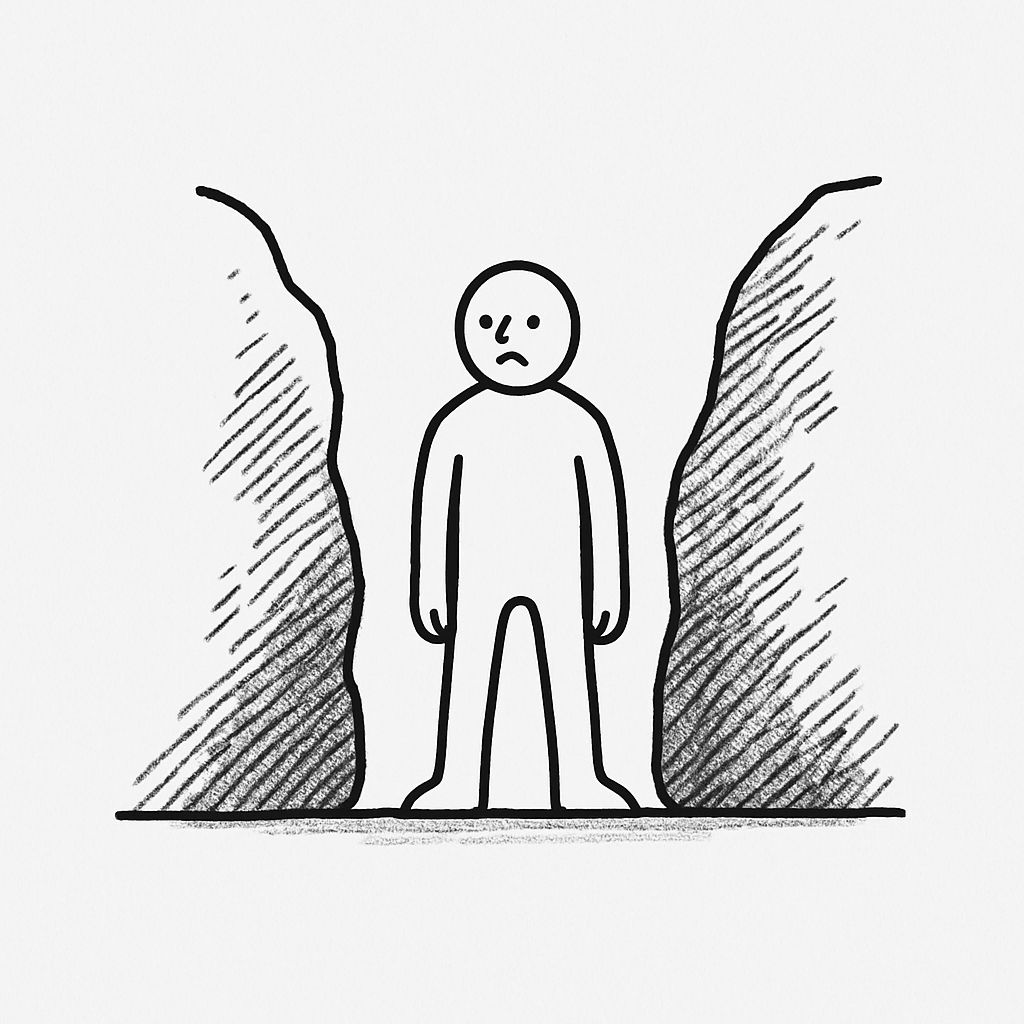I felt that same old familiar feeling — rock and a hard place, as the saying goes. I’ve been there many, many times before. That place where there really doesn’t seem to be any movement either way. You’re damned.
If you’re quiet enough, the answer will come. The movement will come.
And it’s not a movement that comes from your mind.
Hell, you can’t even take credit for it — because there’s nothing you did for it, except one big thing:
Give up the struggle.
Instead of trying to find your way out of the hard place, forcing solutions, trying to figure it all out, or arguing with life about why you’re in there in the first place, you do something so counterintuitive, so revolutionary, that your mind nearly jumps out of its own head.
You simply stop the struggle.
Imagine being tied up in one of those knots that only tightens the more you pull. That’s not far from the truth of the hard place. It’s as if the more we try to wrestle our way out, the deeper we dig the hole.
But still — no one likes being stuck. And rightly so.
Maybe I shouldn’t speak for everyone. I’ve met a few who seem to prefer stuckness because the idea of freedom is just too overwhelming.
But most of us, I imagine, would much rather be free.
And there’s nothing worse than the feeling of no movement.
What I’m getting at is this: stuckness — the not-knowing, the confusion, the fog, the feeling lost — these are all forms of the hard place.
And I don’t think any of that is actually the problem.
In fact, I think we’d be wise to expect them.
Being lost and confused is just part of being human.
I watched this series recently — Somebody Somewhere — and I highly recommend it for the realness of its characters and the vulnerability of its story. There’s a line that changes the course of the main character Sam’s life. Her friend says to her:
“No one knows what they’re doing.”
Never has a truer word been spoken.
None of us really know.
We’re just making it up as we go, and stumbling as we go.
But somehow, we’ve picked up this bad habit of expecting more from ourselves, like we ought to know better.
Well, how on earth ought we to know more than we do?
It’s a total delusion. We can only know what we know.
And we’re going to get it wrong — again and again — and that does not need to be a problem.
In fact, in my experience, the less I make it a problem, the more I learn.
So back to that damned ditch I was in — that old familiar feeling. Can’t say yes, can’t say no. No obvious way to go.
But something strange happened.
I noticed I wasn’t so afraid of the feeling anymore.
And a little voice inside reminded me:
I am completely free to make my best move.
I think of a tennis court — the best rallies, the impossible shots that come out of impossible angles.
Even if the player loses the point, we love watching that kind of play — the creativity, the comeback, the refusal to give in.
Something in us lights up when we see someone come back from a hard place.
People rising out of difficulty, big or small — it’s an endless fascination.
So maybe the point isn’t to wish for the rock and the hard place.
But what if we could be just a little more grateful for those moments?
Because they’re asking something of us — something more than we think we have.
And the only way out… is in.
To trust that it’s in you, in me, in everyone — and to learn to follow it.
